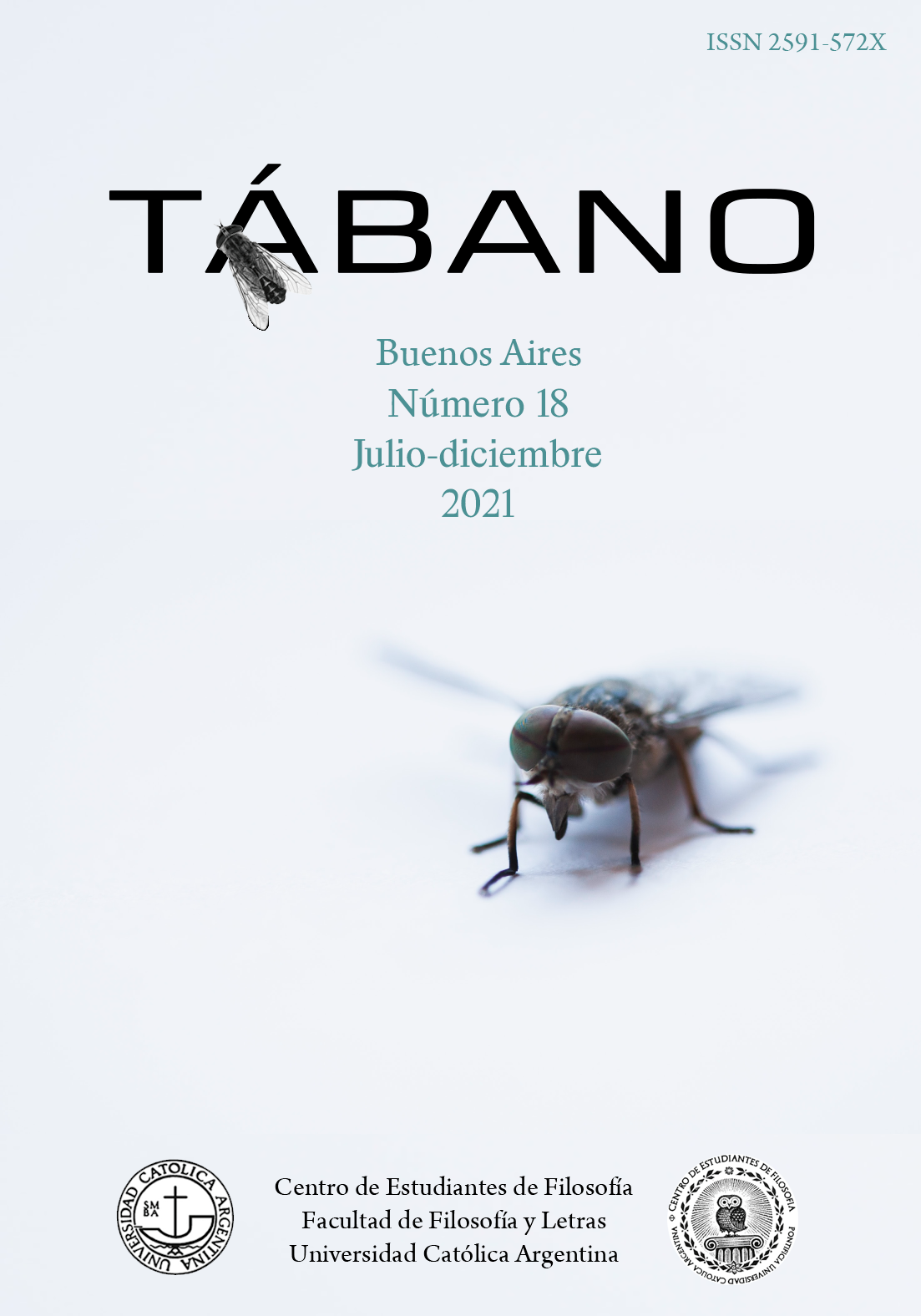Las nociones de Sinn y Sprache en Sein und Zeit de Heidegger y en las Philosophische Untersuchungen de Wittgenstein
DOI:
https://doi.org/10.46553/tab.18.2021.p73-86Keywords:
Hermeneutical phenomenology, Wittgenstein, Sinn, Sprache, Philosophy.Abstract
The philosophies of Martin Heidegger and Ludwig Wittgenstein —without a doubt— constitute the most important and influential theoretical elaborations of the philosophical field of the 20th century and that they remain relevant weight even in this century. The intention of this paper is put both philosophies in dialogue regarding certain categories that are common. In particular, the notions of Sinn (sense) and Sprache (language), but only in two relevant writings by both authors: Sein und Zeit by the so-called Germany’s teacher and Philosophische Untersuchungen by the Viennese philosopher, namely, what is regularly known as "First Heidegger" and "second Wittgenstein". What is intended with this dialogue is to draw certain conclusions about the positions that each one of the authors assumes regarding the aforementioned issues, showing advances, setbacks, reductions or expansions in the treatment of the themes.Downloads
References
Baker, G. P. y Hacker, P. M. S. (2005a). Wittgenstein: understanding and meaning. Volume I of an analytical commentary on the Philosophical investigations. Part I: Essays. Oxford: Blackwell.
Baker, G. P. y Hacker, P. M. S. (2005b). Wittgenstein: understanding and meaning. Volume I of an analytical commentary on the Philosophical investigations. Part II: exegesis §-§ 1-184. Oxford: Blackwell.
Baker, G. P. y Hacker, P. M. S. (2009). Wittgenstein: rules, grammar and necessity. Volume II of an analytical commentary on the Philosophical investigations. Essays and exegesis of §-§ 185-242. Oxford: Wiley-Blackwell.
Bertorello, A. (2008). Texto, acción y sentido en la fenomenología de mundo de M. Heidegger. Revista de Filosofía, Vol. 33, Núm 2, pp. 111-130.
Conant, J. (2000). Elucidation and nonsense in Frege and early Wittgenstein. En A. Crary y R. Read (eds.). The new Wittgenstein (pp. 174-217). London-New York: Routledge.
Diamond, C. (1996). The realistic spirit: Wittgenstein, philosophy and the mind. Massachusetts: Massachusetts Institute Technology Press.
Dreyfus, H. L. (1991). Being-in-the-World. A commentary on Heidegger’s Being and Time, Division I. Massachusetts: Massachusetts Institute Technology Press.
Escudero, J. A. (2016). Guía de lectura de Ser y Tiempo de Martin Heidegger. Vol. I. Barcelona: Ed. Herder.
Gaos, J. (2013). Introducción a El ser y el Tiempo de Martin Heidegger. México: Fondo de Cultura Económica.
Hacker, P. M. S. (1986). Insight and illusion. Themes in the philosophy of Wittgenstein. Oxford: Clarendon Press.
Heidegger, M. (1967). Sein und Zeit. Tübingen: Max Niemeyer Verlag.
Heidegger, M. (1979). Prolegomena zur Geschichte des Zeitbegriffs (GA 20). Frankfurt am Main: Vittorio Klostermann.
Lafont, C. (1997). Lenguaje y apertura del mundo. El giro lingüístico de la hermenéutica de Heidegger. Madrid: Alianza Editorial.
Lafont, C. (1999). The linguistic turn in Hermeneutic philosophy. Massachusetts: MIT.
Rubio, R. (2015). Afectividad y significaciones en la analítica del Dasein. En Xolocotzi, Á. (Ed.). Studia Heideggeriana, Vol. IV (pp. 23-45). Buenos Aires: Teseo.
Stern, D. G. (2004). Wittgenstein’s Philosophical investigations: an introduction. New York: Cambridge University Press.
Wittgenstein, L. (2014). Tractatus logico-philosophicus. Madrid: Alianza Editorial.
Wittgenstein, L. (2015). Investigaciones filosóficas. Madrid: Ed. Gredos.
Downloads
Published
How to Cite
Issue
Section
License
Copyright (c) 2021 Martín Abraham

This work is licensed under a Creative Commons Attribution-NonCommercial-ShareAlike 4.0 International License.


